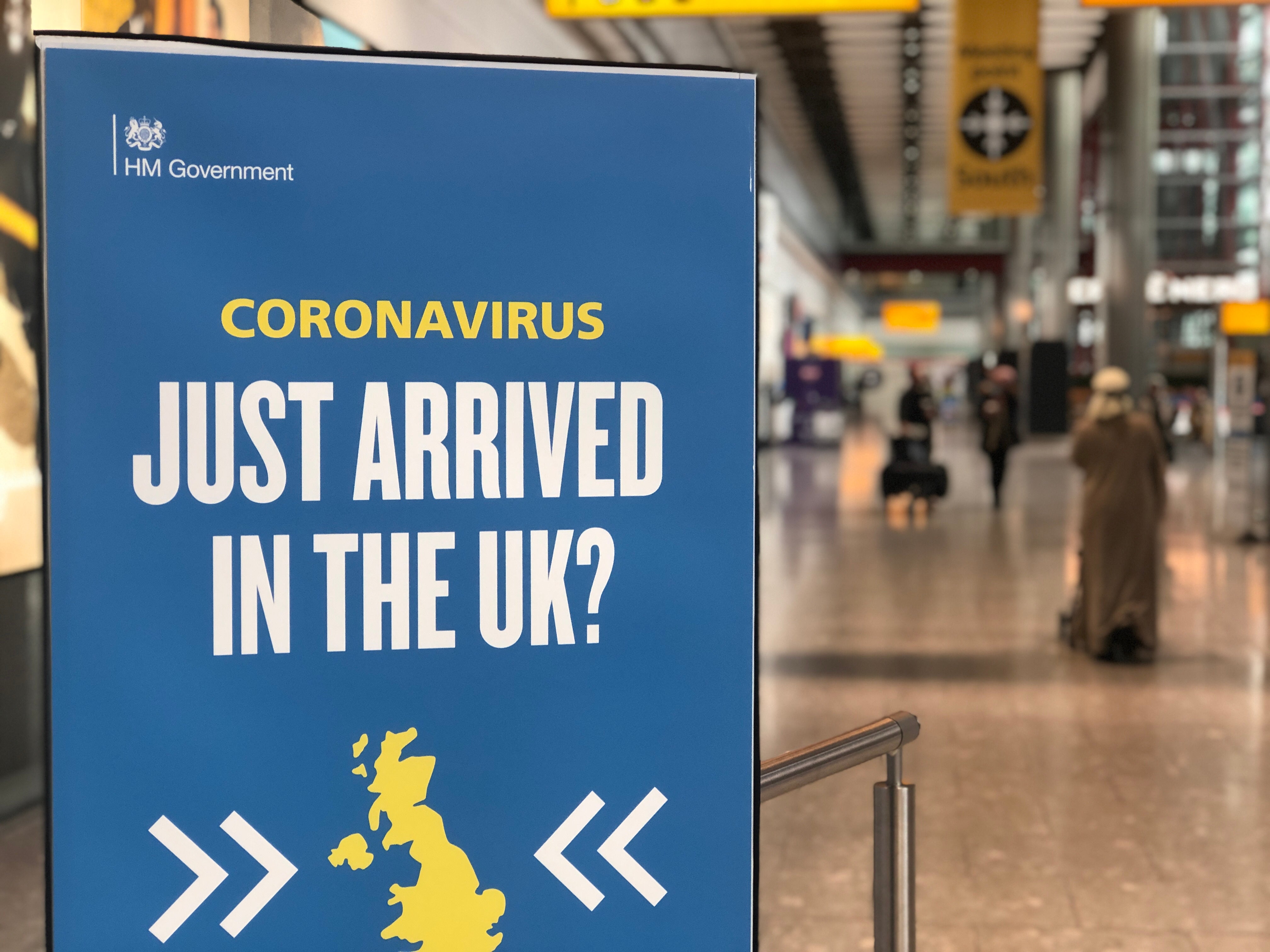Airport testing: Government’s claims on testing ineffectiveness are ‘flawed', say airlines
Ministers rely on theoretical research from June that makes ‘outdated assumptions,’ says Shai Weiss of Virgin Atlantic

Your support helps us to tell the story
From reproductive rights to climate change to Big Tech, The Independent is on the ground when the story is developing. Whether it's investigating the financials of Elon Musk's pro-Trump PAC or producing our latest documentary, 'The A Word', which shines a light on the American women fighting for reproductive rights, we know how important it is to parse out the facts from the messaging.
At such a critical moment in US history, we need reporters on the ground. Your donation allows us to keep sending journalists to speak to both sides of the story.
The Independent is trusted by Americans across the entire political spectrum. And unlike many other quality news outlets, we choose not to lock Americans out of our reporting and analysis with paywalls. We believe quality journalism should be available to everyone, paid for by those who can afford it.
Your support makes all the difference.Claims by the prime minister, the transport secretary and other ministers that testing passengers at airports is ineffective are based on “flawed and outdated assumptions,” according to a top airline boss.
Boris Johnson and Grant Shapps have repeatedly dismissed appeals by airlines and airports to test travellers arriving in the UK, citing a theoretical study in June by Public Health England (PHE) which predicts only 7 per cent of asymptomatic cases of coronavirus would be identified.
In September the prime minister said: “Ninety-three per cent of the time you could have a real false sense of security, a false sense of confidence when you arrive and take a test.”
But a consortium of airlines and airports have funded independent research that they claim exposes serious shortcomings in the PHE study,
Shai Weiss, chief executive of Virgin Atlantic, said: “Today’s new and independent analysis identifies flawed and outdated assumptions in that modelling, and reveals that testing will capture a vast majority of cases rather than the purported 7 per cent.”
The PHE theoretical paper was considered by the government’s Scientific Advisory Group for Emergencies (Sage) on 18 June 2020, 10 days after blanket quarantine was imposed for arrivals in the UK from all foreign countries except Ireland.
Its key assumption is: “Any travellers that become symptomatic/detectable prior to boarding their flight, do not fly (whether for reasons of exit screening or by being too ill).”
George Batchelor, director of the consultancy Edge Health, said: “This evidently isn’t the case, and it leads to an underestimation of the effectiveness of testing on arrival (the 7 per cent figure), raising serious questions about its role in informing government policy on passenger testing.’
Heathrow, Manchester Airports Group and British Airways’ parent company, IAG, also supported the review.
A government spokesperson rejected the review’s criticism, saying: “The scientific evidence on testing international arrivals was reviewed and approved by Sage.
"Scientific modelling groups and the London School of Hygiene & Tropical Medicine independently generated similar results.
“International arrivals from non-exempt countries must quarantine for the full 14 days as the incubation period for the virus means passengers who do not follow this advice may pose a risk to others.
“Work is ongoing with clinicians, the devolved administrations and the travel industry to consider if and how testing could be used to reduce the self-isolation period.”
Last week the transport secretary appear to hint that new data supported the government’s position, saying: “It is true to say, I'm afraid, I know this has been hotly disputed, and this is what has taken time to get to the bottom of, that you’d only pick up about 7 per cent of those who are asymptomatic coming off that flight on day zero.”
The Independent then asked the Department for Transport (DfT) if new research had been conducted, but was told the source remained the Sage paper from June.




Join our commenting forum
Join thought-provoking conversations, follow other Independent readers and see their replies
Comments